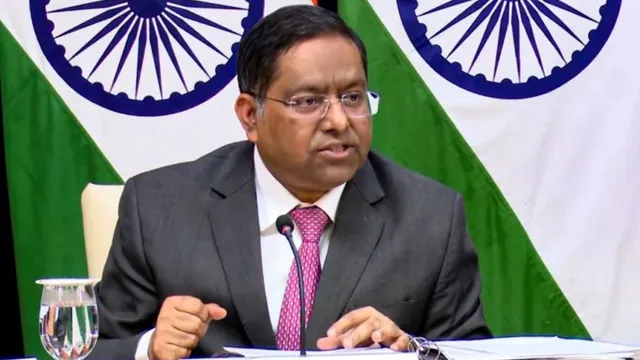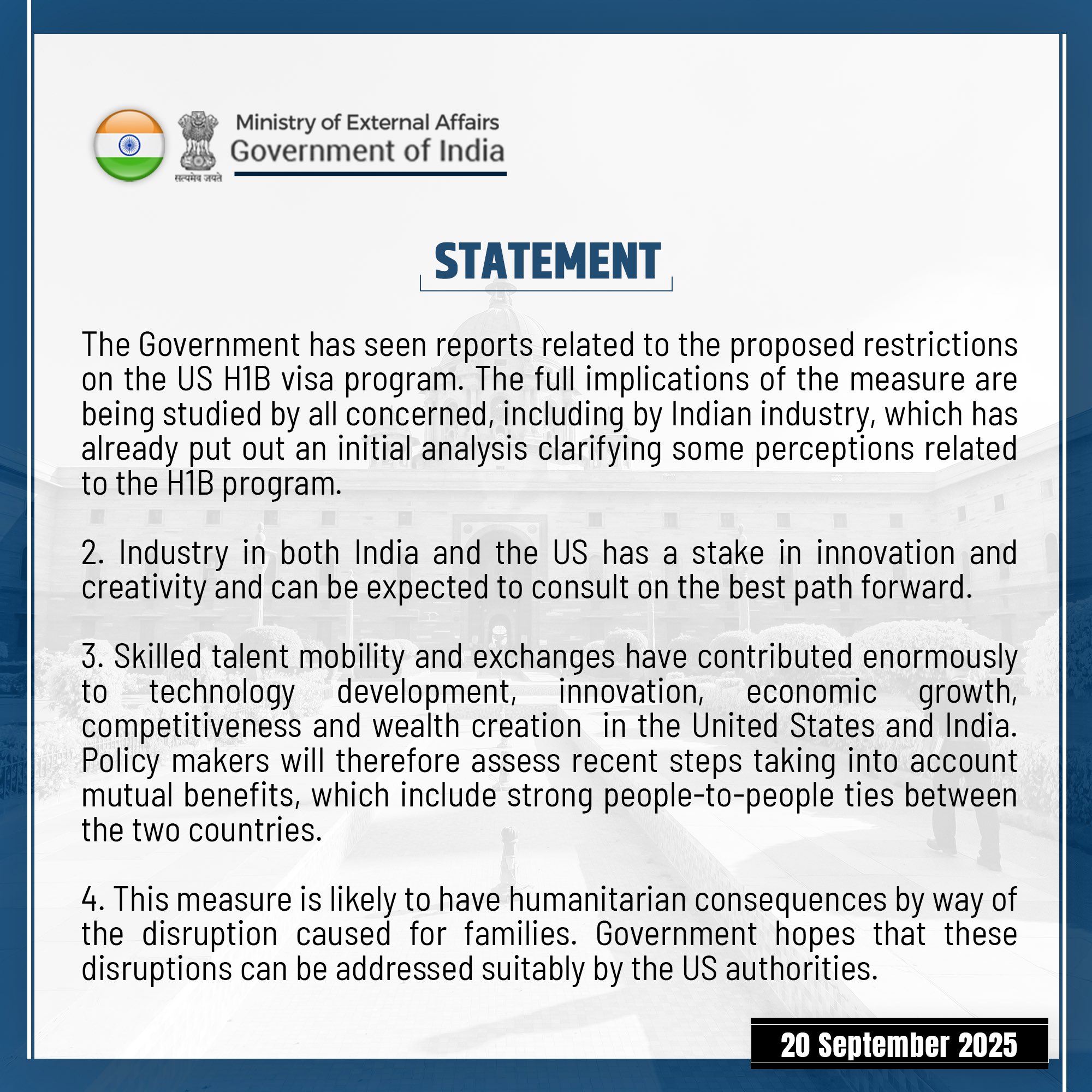- By Ajeet Kumar
- Sat, 20 Sep 2025 07:11 PM (IST)
- Source:JND
India on Friday responded to US President Donald Trump’s decision to increase H-1B visa fees, urging the US administration to consider and address the humanitarian impact on affected families. The statement from the Ministry of External Affairs came hours after Trump signed a proclamation to raise the H-1B visa fee to a staggering USD 1,00,000 annually, a move which will adversely affect Indian professionals in the US.
Trump on Friday signed the proclamation ‘Restriction on entry of certain nonimmigrant workers', saying the abuse of the H-1B visa programme is a "national security threat".
How India reacted to H1-B visa hike
"The Government has seen reports related to the proposed restrictions on the US H1B visa program. The full implications of the measure are being studied by all concerned, including by Indian industry, which has already put out an initial analysis clarifying some perceptions related to the H1B program," MEA spokesperson Randhir Jaiswal said in a statement.
ALSO READ: Airfares Surge Dramatically After Trump's H-1B Visa Fee Hike, Indians Turn Back Mid-Route
"This measure is likely to have humanitarian consequences by way of the disruption caused for families. Government hopes that these disruptions can be addressed suitably by the US authorities," addd the statement.
H1-B Visa fee hike
Trump on Friday issued a new presidential proclamation titled "Restriction on Entry of Certain Nonimmigrant Workers" that introduces a major overhaul to the H-1B visa programme, imposing a steep USD 100,000 annual fee on H-1B visa applications, raising fresh questions about whether this is a much-needed correction or a potentially crippling blow to America's tech talent pipeline.
Set to take effect on September 21, the proclamation represents one of the Trump administration's most aggressive efforts yet to overhaul the H-1B visa programme. Framed as a crackdown on "systemic abuse", it places strict financial and compliance burdens on companies seeking to hire skilled foreign workers, especially in the technology and IT sectors.
With 71-72% of H1B visas going to Indians, the $100,000 annual fee imposed by Trump effectively prices out many Indian professionals. This could lead to a significant drop in remittances, which were $125 billion in 2023, affecting families and economies back home.
How H1-B Visa fee hike will impact India
Indian IT giants like TCS, Infosys, and Wipro rely heavily on H1B visas. The new fee could cost them billions, potentially leading to reduced hiring or shifting jobs back to India.
H1B visas have been a key pathway for upward mobility for many Indian families. This change might close this avenue, impacting social and economic progress.
Indian IT industry body Nasscom has expressed concerns following the US decision of a new USD 100,000 annual fee on H-1B visa applications, calling the move potentially disruptive to global business continuity and the innovation ecosystem in the United States.
In a statement issued on Saturday, Nasscom said that while it is reviewing the finer details of the proclamation, such significant adjustments to the skilled worker visa programme could have far-reaching implications.
"Adjustments of this nature can potentially have ripple effects on America's innovation ecosystem and the wider job economy. It will also impact Indian nationals that are on H-1B visas working for global and Indian companies. India's technology services companies will also be impacted as business continuity will be disrupted for onshore projects which may require adjustments. Companies will work closely with clients to adapt and manage transitions," the industry body said.
Indian embassy in touch with Indian officials: Report
According to government IANS sources, New Delhi is in touch with the Indian Embassy in Washington and is also holding consultations with the leading tech industry body Nasscom. The new H-1B costs are expected to affect the US companies the most, as these rely heavily on Indians for specialised and high-skilled tech roles.
According to experts, this may also trigger a new wave of Global Capability Centres (GCCs) in India to meet the shortage of talent in the US after the new visa fee rule. Indians hold the highest number of H1-B visas, followed by China.
(With inputs from agencies)


